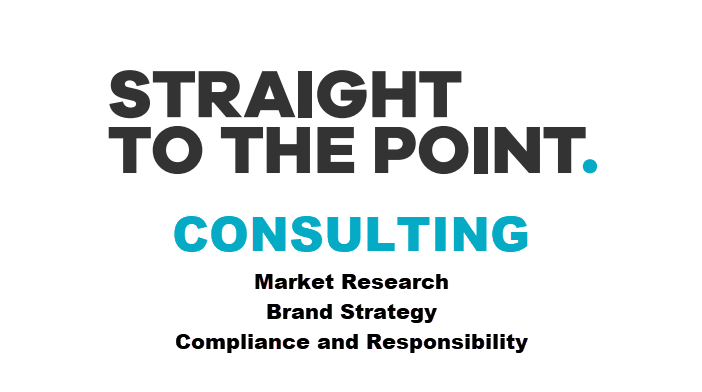Hold For The Next Available Operator
After announcing a six-month consultation period, France's hopes of regulating online casino in 2025 have taken a hit, with 2026 a more likely target.
The Bulletin Board
NEWS: France’s online casino legalization efforts are unlikely in 2025.
LEGAL and REGULATORY UPDATES: Cherokees sue Arkansas; Canadian ad bill advances; NH considers replacing HHR with slots.
VIEWS: A
splashbucket of cold water for the Land of 10,000 LakesNEWS: Louisiana is the latest state to toy with a sports betting tax hike.
AROUND the WATERCOOLER: A cornucopia of cease-and-desist letters.
STRAY THOUGHTS: There is nuance to the size vs. skill debate.
SPONSOR’S MESSAGE - Sporttrade was borne out of the belief that the golden age of sports betting has yet to come. Combining proprietary technology, thoughtful design, and capital markets expertise, our platform endeavors to modernize sports betting for a more equitable, responsible, and accessible future.
Sporttrade is now live in their fifth state; Virginia
France Pushes Possible Online Casino Regulation to 2026
According to Jake Pollard from the Gaming and Co. newsletter, “France is set to undertake a six-month consultation to assess whether the country will regulate online casinos in 2025.” Pollard notes the consultation period raises a question about timing and likely pushes regulation back to 2026.
Per Pollard, “Around 50 delegates from the country's casino, horse racing, and online gambling sectors, along with MPs and representatives from mayoral associations and player protection groups, were present at the event on Wednesday.”
Opinions are very divided on the topic, with no less than three sides emerging:
Representatives of the country’s casino industry want complete control of the online industry.
The country’s horse racing and lottery industries have come out in opposition to online casino legalization.
Current online operators want a pathway to licensure.
CdF VP Fabrice Paire, who represents the country’s casino operators, said that an open market would be a rigged contest and that the casino industry would be making the same mistake it made in 2010 when it allowed existing unregulated operators access to sports betting and poker licenses. If the market were completely open, it would mirror the current online sports betting markets, where three brands control 80% of the market, Paire said, per Pollard’s reporting.
To fully understand the current situation and stay up to date on France’s efforts to regulate online casinos, I highly recommend subscribing to Pollard’s English-language version of Gaming and Co.
Legal and Regulatory Updates: Cherokees Sue Arkansas; Canadian Ad Bill Advances; NH Considers Slots
Not so fast: The Cherokee Nation is suing the state of Arkansas after voters rescinded the tribe’s casino license (which it was awarded in June) during last week’s election. The tribe “asked a federal judge to declare the amendment unconstitutional and issue a temporary restraining order and preliminary injunction to prevent the amendment from taking effect on Nov. 13,” per reporting by the Arkansas Advocate.
Canadian Senate passes bill restricting sports betting advertisements: Canada is one step closer to countrywide gambling advertising restrictions. Per Legal Sports Report, “The Canadian Senate passed Bill S-269, sending it to the House of Commons. The Senate’s Transport and Communications Committee held debates in June and several hearings this fall to further flesh out the legislation that creates guidelines for the industry’s advertising.
Choose your fighter (HHR or slow-paying slots): The New Hampshire Charitable Gaming Study Commission (NHCGSC) has recommended replacing the historical horse racing machines at the state’s charity casinos with slots… but with a significant catch. The NHCGSC is recommending slow-playing (not slow-paying) slot machines that have a similar delay to the current HHR machines. As an aside, someone needs to have a chat with the Live Free or Die State about the verbosity of its commissions and studies (recall this one from last year).
Why hire Steve Ruddock? Over the years, Steve has advised startups, national gambling companies, government agencies, and investment banks on a wide variety of topics.
Whether you’re looking for market research, want to raise your brand awareness, or are trying to develop responsible gaming strategies, Steve can help with honest, balanced, no-nonsense analysis of the situation.
Steve’s unique experience and insights are often the missing piece to the puzzle.
Reach out for more information: Straight to the Point Consulting.
I spend a lot of time in this newsletter throttling optimism and throwing cold water on supposed breakthroughs like Minnesota sports betting being closer than ever heading into 2025.
there’s new optimism after a recent anonymous report (more on that below) and this video message from State Sen. Jeremy Miller who said sports betting almost got there last year.
So let’s take a look at the letter that signals a “closer than ever” deal that will bring sports betting to Minnesota is in the cards:
"Running Aces understands the importance of tribal gaming in Minnesota and the economic support that it provides to each of the sovereign tribal nations in this state. We also believe that racetracks, tribal casinos and charitable gaming all provide important and distinct benefits to the communities we each serve and broad benefits to all Minnesotans. Minnesota has demonstrated that all three types of gaming can be successful. We believe it is possible to work through any disagreements and arrive at successful compromises. We are hopeful that legislators and the gaming industry can all work together to ensure passage of a bill that benefits all three of these entities and the communities they serve. Based on numerous public polls, 90% or more Minnesotans support a sports betting bill that is beneficial for the horse industry, tribal communities and local charities, and we are hopeful that the gaming industry can come together, at the Capitol, to pass sports betting legislation that reflects an appropriate compromise. We stand ready to do what we believe is in the best interests of the horse racing industry, employees and shareholders and provide our full support to a sports betting bill that accomplishes this goal."
These sentences are the quintessential “how to speak politician” lines, with “believe” and “hopeful” doing a lot of work:
“We believe it is possible to work through any disagreements and arrive at successful compromises.”
“We are hopeful that legislators and the gaming industry can all work together to ensure passage of a bill that benefits all three of these entities and the communities they serve.”
“We stand ready to do what we believe is in the best interests of the horse racing industry, employees, and shareholders and provide our full support to a sports betting bill that accomplishes this goal.”
And Fox 9’s “source” added their own politician-speak to the conversation, telling the news outlet, they believe sports betting could [bold mine] "potentially be legal in Minnesota by the 2025 NFL season."
Louisiana Lawmaker Proposes OSB Tax Rate Hike
In yesterday’s newsletter, I mentioned that RSI CEO Richard Schwartz doesn’t expect other states to raise OSB tax rates.
“Protecting consumers is a goal,” Schwartz said during the company’s earnings call. “Governments raising taxes on regulated operators like us really just simply drives more volumes at unregulated sites like the Sweepstakes casinos where no one benefits.”
Right on cue, a new bill in Louisiana would bump the state’s sports betting tax rate from 15% to 51%.
State Rep. Roger Wilder introduced the legislation, HB22, this weekend as part of a special session called by Gov. Jeff Landry to try “to fix our broken tax code and bring economic prosperity to Louisiana.”
The good news, if you’re on Schwartz’s side of the wager, is that due to Louisiana legislative rules, it would take a two-thirds majority in both chambers to pass.
“There’s only so many times you can go to the golden goose before you kill the goose and this is one of those time when you’re going to kill the goose,” Brendan Bussmann of B Global Advisors said (h/t iGaming Business). “It comes back to the industry having to educate legislators on sports betting and how misnomers in sports betting continue to drive a wedge in reality.”
Sponsor’s Message - Vixio, a leading RegTech provider for gambling compliance, has released its 2024 U.S. Sports Betting Outlook.
As of September, Vixio predicts the U.S. online sports betting market will be worth $24.2bn to $27.8bn by 2028.
Download your copy of the U.S. Sports Betting Outlook here.
Who is Vixio? Vixio takes the heavy lifting out of regulatory monitoring to help mitigate risk and uncover growth opportunities. Vixio’s award-winning GamblingCompliance platform is trusted by the world’s biggest gambling brands for insights into specific requirements in 180+ jurisdictions to stay current with the ever-evolving gambling regulatory landscape.
Around the Watercooler
Social media conversations, rumors, and gossip.
It’s been pretty quiet on the sweepstakes front, which is almost always a sign of the calm before the storm (meaning, discussions are likely happening in the background).
Case in point: this post from Howard Glaser:
Stray Thoughts
You’ll often hear people debating size/strength vs. skill in martial arts circles. It’s a fun conversation, but the discussion is usually lacking one essential part of the strength side: explosiveness. In a fight, explosive strength is one of the biggest predictors of who will win, but it rarely comes up.
Conversely, when it comes to skill: How big is the skill gap and what are the specific skill deficits, considering there are probably 100 different skills we could measure.
Another factor few people discuss is balance. Most people have terrible balance, regardless of size and strength. Punches require balance. Not getting taken down requires balance. Keeping someone in front of you requires balance. Getting up off the ground requires balance.
One way to think about this in relation to gambling (this is a gambling industry newsletter after all) is that obvious answers like product and brand don’t tell the entire story about success and failure; they are the size and skill of the conversation. Sometimes we have to dig a little bit deeper.








